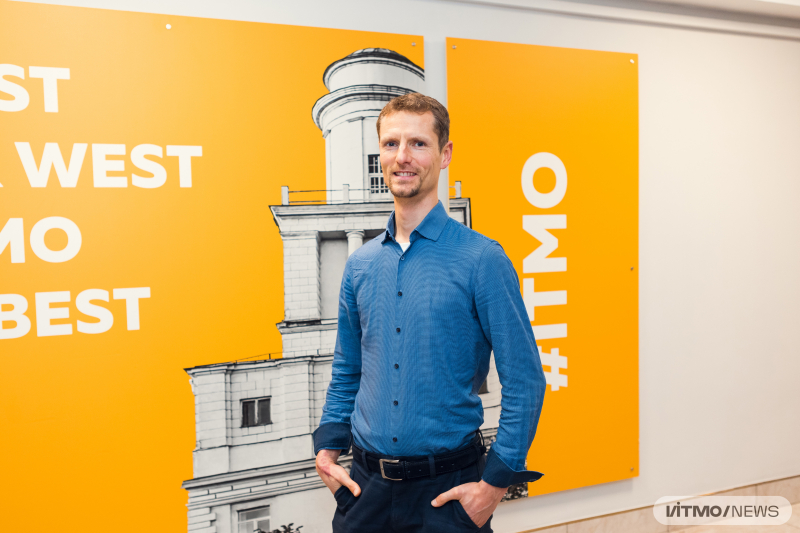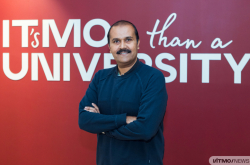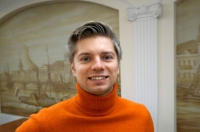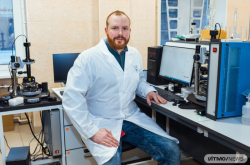What courses do you teach at ITMO?
I have been teaching Public Speaking, which is made up of two courses. This year, I’ve had four groups with five to six people from various faculties, and in previous years there were twice as many. Before that, I taught online due to the pandemic, but I always wanted to come to St. Petersburg and now I’ve finally done it.
How did you like St. Petersburg in November?
I like St. Petersburg a lot. This time I’ve been here for just a couple of days. It has been raining, true, but there are things to do even when the weather’s bad – I visited museums and theaters and loved them. I hope I’ll be able to come next year, too. Teaching on-site is much more pleasant and efficient.
How did you start coaching scientists? What was your inspiration?
I’d been doing a lot of research and traveling while getting my postdoc degree. I worked at labs and universities in Finland, Norway, the US, and the Netherlands, as well as Germany. I saw that research teams often aren’t able to realize their true potential, both as a group and individually. That’s when I thought that it could be done with proper management and communication techniques and would result in bigger achievements.
Being a scientist myself, I became interested in leadership, teamwork, communication, and so on. Even though I don’t do research now, deep in my heart I am a scientist, so I wanted to contribute to science and help it flourish. Hopefully, my soft skills courses for researchers do the job.
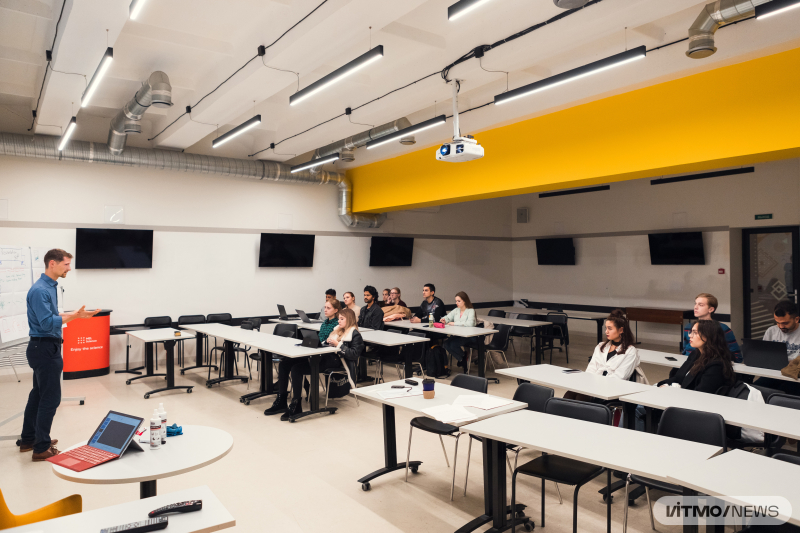
Christoph Sprung's class at ITMO. Photo by Dmitry Grigoryev / ITMO.NEWS
Why are these skills crucial to scientists?
Firstly, it’s important to be able to properly communicate your ideas and thoughts. I’ve been to many conferences and saw presentations by numerous scientists. I think that if they would structure their presentations better and would make them more comprehensible and inspiring, it would be more enjoyable for the audience as well. It’s crucial to know how to convey what you actually want to say.
I’ve found that scientists don’t get so much training in this field, unlike in the industry. Companies usually invest more in the training of their workers and hold soft skills, leadership, and time management courses and so on. In universities, it’s not so common. It’s mostly learning by doing – some are doing it better than others and that’s the way it is. Now there is a shift – some universities are beginning to invest more in soft skill courses for scientists.
Do you only train students?
I’m actually more focused on research teams, academic staff, and lecturers. In particular, I teach didactics (like project- and problem-oriented learning), team leadership, communication/presentation, project management and more. Sometimes I also conduct courses for companies.
How did you discover ITMO?
I heard about ITMO University a long time ago. I frequently came across it when I was doing a lot of research back in the day. Then, I saw an ad for the position of a public speaking lecturer in some academic newsletter and it immediately caught my eye. By that time I’d been into soft skills coaching for 5-6 years. I was especially attracted by the fact that it meant training young scientists who rarely get such skills at a university. So, I thought it would be great to be a part of it. I applied and luckily I got accepted.
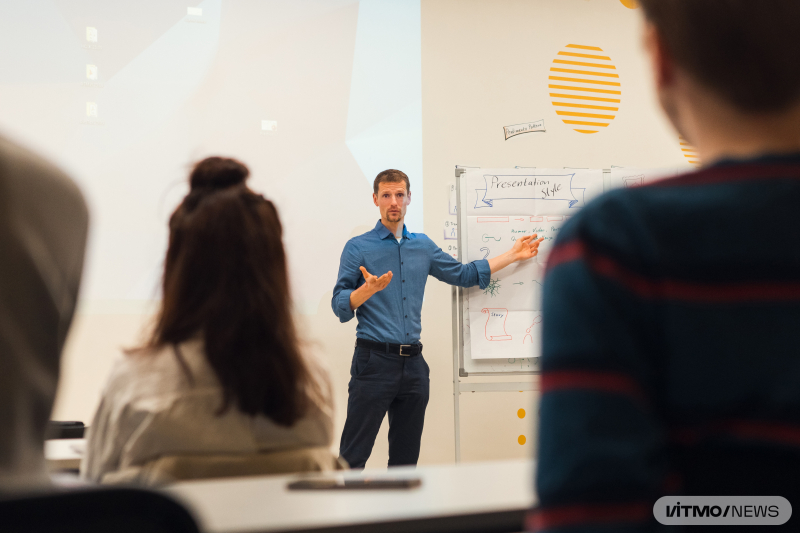
Christoph Sprung's class at ITMO. Photo by Dmitry Grigoryev / ITMO.NEWS
What impression do you have of ITMO students so far?
I was really impressed by their enthusiasm and ideas. I felt that they are really creative – I saw many impressive presentations. And they were really eager to work and put a lot of passion into their projects. At the same time, the course was quite intense. It lasted two weeks and they had to work with people from different backgrounds and from different faculties. So, first of all they have to find a common language to communicate. Each one had a certain mindset, depending on the field they come from. And then they have to create an idea together and implement it. They learned to contribute their knowledge to reach a common goal, and they tried to turn this into a business case, which can potentially become a startup.
I feel like they will have quite a bright future ahead. The experience they’ve acquired here will teach them a lot about how business and industry works. This will benefit their professional career substantially.
What were you researching before becoming a coach?
My research field is physical and industrial chemistry and kinetic simulations. It’s about catalysis – how one substance becomes another, how different factors affect this process, and how they can be controlled. I was interested in seeing how it actually works in a more general perspective instead of researching specific reactions. I wanted to zoom out and make this understanding applicable to different reactions and find a common pattern or general understanding of how various processes work.
Have you finished this research?
I had several ideas on how that might work, but finishing the research was never my aim. I see science as a constant flux in which great scientists of the past have once brought things up to a certain point – whatever they could do at the time and with the methods they had – and subsequent researchers like me try to take a step forward from there, and so on. That’s how I see science and I hope I contributed something to it.
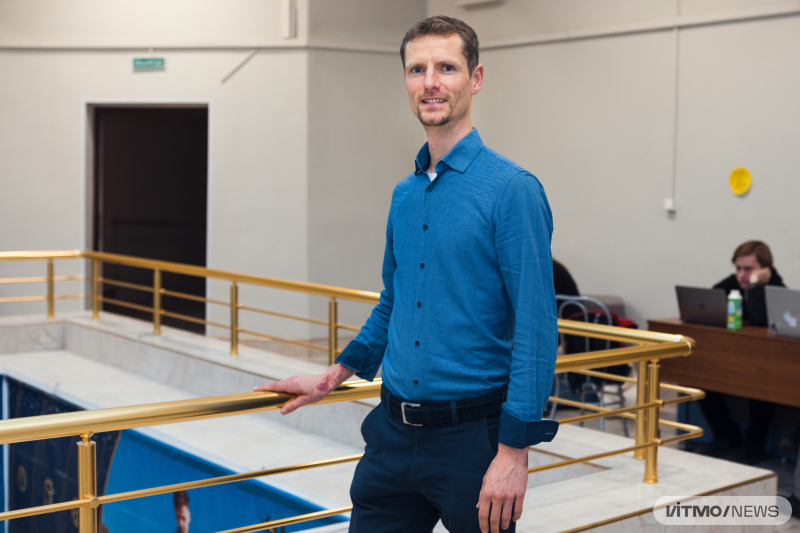
Christoph Sprung at ITMO University. Photo by Dmitry Grigoryev / ITMO.NEWS
Do you miss research work?
Yes, I miss it quite a bit. I think I might return to it at some point. Back in the day, when I started researching, I didn’t see how I could grow in this field. A career in science seemed like a pyramid – there are many people starting on this path, but over time, more and more of them give up. I guess that’s what happened to me, too. But I’m still thinking about it and there is some research I want to do. You never know. Life might bring me back to being an active researcher again.
You also work as a scientific consultant for industry companies. How different is this from working at labs?
The difference is – when you’re doing academic work, you immerse yourself deep into the subject with all its details. You have ideas you wanna go for, you have a mystery to solve, and it keeps you awake at night.
In the industry, it’s less about going deep, but still you need to have a good understanding of processes and how they work, how to produce something that customers would buy, and how to produce a product of high quality.
What do you consider to be the key aspect of your career as a coach?
I’ve been doing this for eight years and I’m growing all the time. I learn new things when I teach courses. And indeed it’s an enjoyable task to do. I like to feel that I do something good for the scientific community – that I help lecturers to teach in a more efficient, appropriate way and give students what they need for their professional future.
